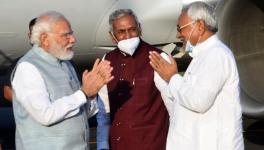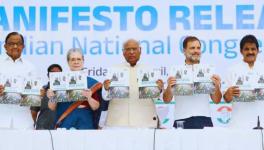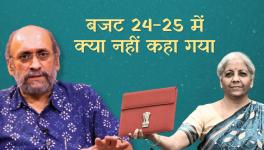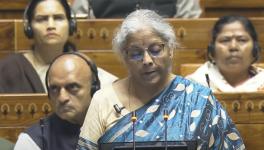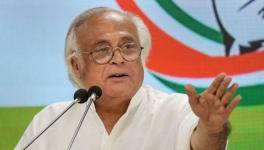Capitalising on the COVID-19 Crisis?
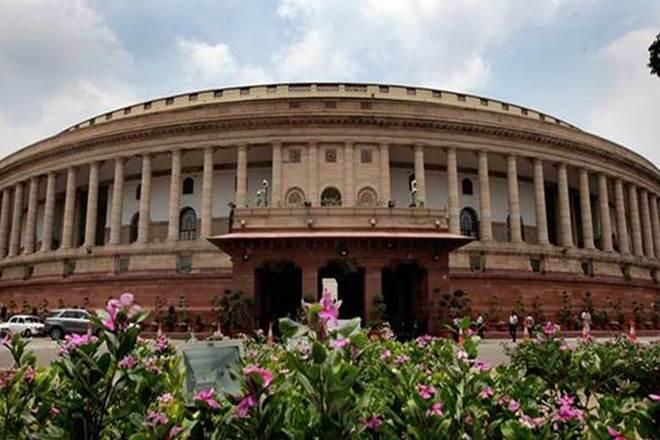
The Union government has taken two important decisions in the Cabinet meeting held on April 6, to deal with the challenges of the COVID-19 crisis. The first one is to cut down the salaries of the prime minister, Cabinet ministers and the members of Parliament (MPs) by 30% for the remaining months of the current financial year. The second decision is to fully withdraw the allocation for the local area development scheme for members of the Parliament (MPLADS) for the coming two years. It has been estimated that these two measures would add an amount worth Rs 7,900 crores to the revenue kitty of the central government.
As a matter of fact, it had been widely expected that the Cabinet meeting would take a decision regarding another financial package to fight against the economic disaster encountered by the nation. However, to the total surprise of everybody, no such financial package was announced, barring these frantic measures. Moreover, no programmes have been announced that take advantage of the additional revenue released by these two measures. It is thus clear that these two measures are simply expenditure cutting attempts rather than finding avenues to fight against the economic catastrophe. In other words, the only aim was to increase the revenue of the central government by cutting expenditure in the name of the COVID-19 crisis.
In short, the twin decisions of the Central government were seemingly taken only to capitalise upon the ongoing crisis and to strengthen the economic situation of the government rather than to deal with the crisis of the economy at large.
Political Scope of Expenditure Cutting
The Union government has been taking and implementing its various economic decisions by deliberately building an emotional atmosphere in the background. When demonetisation was implemented, the central government overcame the huge public anger and protests against the various hardships associated with the exchange of old currencies by advising the public that to curb the menace of black money, it is essential to bear with the “small” pain and difficulties that come with it. This time as well, the central government is creating an emotive environment beforehand to avert any protest or unrest that may happen consequent to the sudden decision of a lockdown and its adverse economic consequences. It is effectively displaying that the top functionaries of the government themselves have borne the brunt of the lockdown and the economic crisis with their salary cut. In addition, this will amply demonstrate and convey the strong message that they have taken the adverse effects of the lockdown and the economic crisis as a personal responsibility. These postures will certainly help the government to easily brush aside the Opposition’s demand for a generous financial package to fight against the economic tailspin consequent to the Covid-19 crisis.
Regarding the salary cut decision, it has an unintended consequence leading to motivating the employers of the private sector, both in organised and unorganised-informal sectors, to implement salary or wage cuts for the hapless employees or labourers and casual workers. Even in the sectors where there is a strong trade union presence, the decision will certainly lead to downward revision of salary or wages. In fact, any attempt to reduce the remuneration of the labour class should be attempted only as a last resort, only in a situation where all the other options have been exhausted.
On the other hand, by effectively withdrawing the MPLADS, the government is imposing a major dent upon the asset creation in the economy. It simply ignores the fact that a major portion of the expenditure under the MPLADS is of the capital expenditure nature that generates a benefit stream well over many years.
However, there is nothing unusual about this public stance of the central government. It only revealed that the government is a prisoner of the neo-liberal penitentiary where the masters religiously argue for decreasing the public expenditure. The comment of the finance minister is worth recollecting when she had said that the remarkable aspect of the Budget 2020 was its 'achievement' of keeping the fiscal deficit at 3.5% of the GDP. And this remarkable feat has been achieved without increasing the public expenditure in any noticeable manner!
Also read: Is India Losing the Battle Against COVID-19?
All these clearly point to the fact that even though the onslaught of measures of globalisation implemented as part of the neo-liberal policy shift has met with the eventual impasse, the central government is ensuring that the other programmes of neo-liberalism such as the anti-labour measures that aim to 'discipline' and destabilise the labour force and the programmes of 'fiscal weakening' euphemistically referred as 'fiscal consolidation' are carried out in a 'diligent' manner. The stance also reveals that the government is attaching more importance to the political scope that may just result in securing the interests of finance capital.
Economic Backdrop of Expenditure Cut
The central government is facing an acute revenue crisis ever since the imposition of demonetisation. According to the Economic Survey, the actual collection of tax revenue up to the end of November 2019 is Rs 7.32 lakh crore. However, the Budget 2020 recorded it to be Rs 15.04 lakh crore as provisional estimates. The more than doubling of tax revenue within a span of less than two months raises a big question on the sanctity of the Budget figures. It is widely understood that the tax revenue claimed by the Budget is a gross overestimation. Prof Jayati Ghosh of Jawaharlal Nehru University has already pointed out that every Budget figure is a lie, to say the least. In fact, what happened was a huge shortfall in the tax collection. However, it could be surmised that the keenness to keep the fiscal deficit at 3.5% level with a view to mollifying the forces of finance capital might have inflated the tax revenue figures to such a level.
It is precisely for filling this revenue gap, the central government denied the benefit of crude oil price fall in the international market to the general public and took away the entire benefit by raising the additional excise duty, which gave the government a revenue bounty worth Rs 38,000 crores. In fact, the fall in petroleum prices came as a boon to the government which was trying hard to find an escape route out of the mess of the revenue shortfall. Still, the government has to cover a lot in this respect and for that reason, it has taken the 'prudent' decision beforehand to pass the Finance Bill on March 23, which raised the upper bound of the additional excise duty on petroleum products by Rs 8 to take advantage of the obvious downfall of international crude prices in the immediate future.
All this reveals the depth of the impending revenue and economic crisis. Indeed, the crisis is a continuation of the mess that the demonetisation bungling unleashed. The Budget 2020 does not even acknowledge that the economy has any recessionary tendencies and it is precisely such a callous positioning that actually aggravates the economic crisis. Instead of the nominal increase in total expenditure from 13.2% to 13.5% of the GDP in the Budget, had the government increased the expenditure, it would have been much easier to overcome the problems of revenue shortfall and recessionary crisis. It is really a shame that a government which came to power with such a resounding victory succumbs cheaply to the overarching influence of neo-liberal paradigm. The grave challenge of the nation is nothing but this meek surrender. Even the United States has at last decided to engage the fiscal overdrive gear by spending two trillion dollars which comes to around 10% of the US GDP. It is high time to extricate the economic policy making from the clutches of neo-liberal paradigm and to spend with the only motive of saving the hapless millions and the helpless economy rather than making the COVID-19 crisis an opportunity to capitalise upon.
The author teaches at the Department of Economics, Maharaja's College Ernakulam, affiliated to Mahatma Gandhi University, Kottayam.
Get the latest reports & analysis with people's perspective on Protests, movements & deep analytical videos, discussions of the current affairs in your Telegram app. Subscribe to NewsClick's Telegram channel & get Real-Time updates on stories, as they get published on our website.









